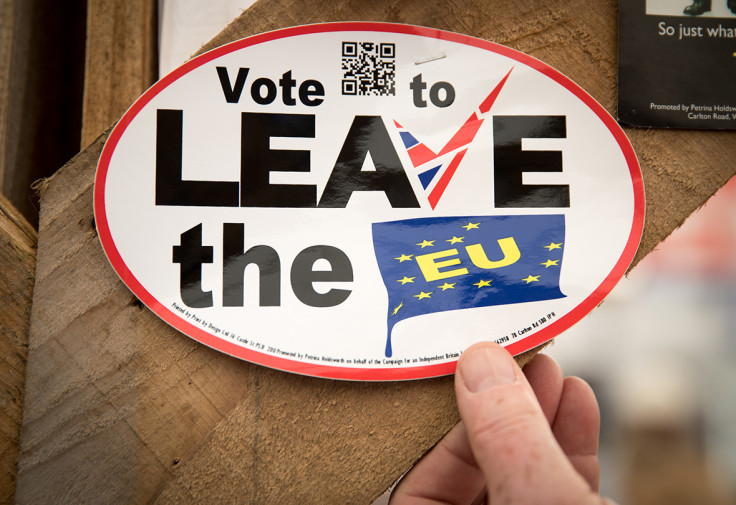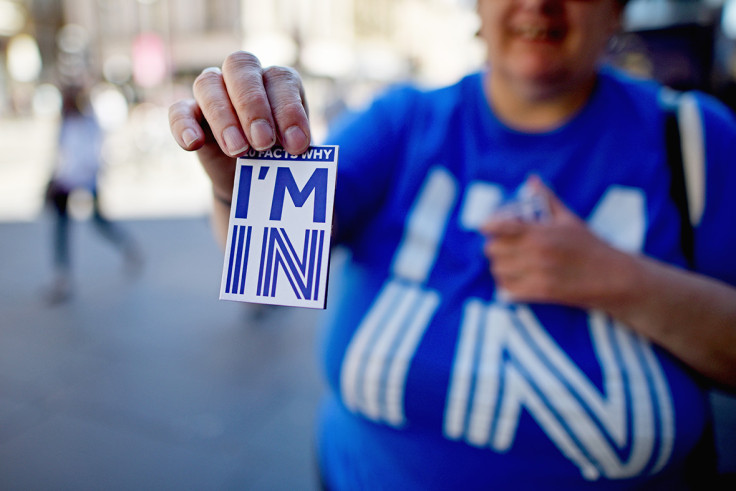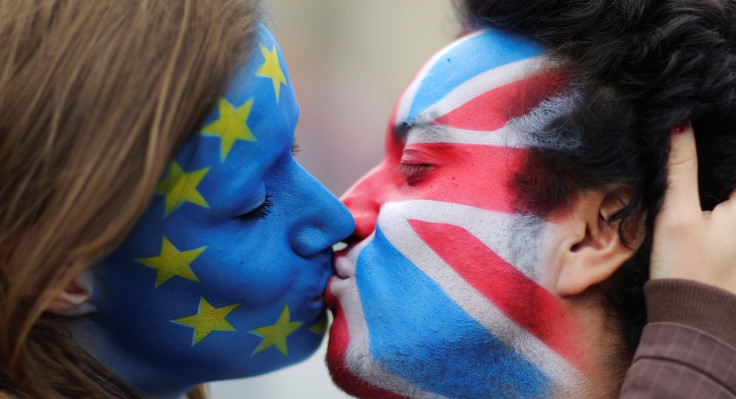EU referendum: Europe stands to lose whichever way the UK votes
Europe is in deep trouble whichever way the EU referendum in the UK turns out, David Brown, the chief executive of independent consultancy group, New View Economics warns. He said: "The real worry is that the world is already slipping back into a black hole of uncertainty whichever way the vote goes. This time there may be no easy way back."
Writing in the South China Morning Post, Brown said that despite major central banks drawing up contingency plans and getting ready to intervene if the UK votes to leave the UK, "it is hard to see what they can do." He added: "Global currency, credit and equity markets are already highly agitated."
Brown continued: "Europe should be especially worried. Whatever happens in this week's Brexit vote, Europe will feel deep shockwaves. It is a 'no win situation.' with Europe standing to lose whichever way the vote goes."
He noted that Europe is still "not long out" of the 2009-2013 eurozone crisis and it has taken huge stabilisation efforts by the EU governments and the European Central Bank to stop the European monetary union and the euro from "falling apart." Brown warned: "It would not take much to open up old wounds and set Europe lurching off into a new economic and financial crisis."
Implications for a Brexit

Brown said that a Leave vote would have an immediate impact with capital flight and a sterling currency crisis to hit British markets. But Europe would not be spared either.
He said market speculators are likely to "quickly home in on contagion risks spilling over into the euro zone." He believes that economic and financial stability would be knocked off its perch. "The bears would scent blood and begin the hunt for 'who goes next.'"
What if UK opts to Remain?

The scenario for a Remain outcome does not look very appealing either. According to Brown, "the barn door has been opened far too wide on European disintegration risks." He said that despite the ECB's monetary "super-stimulus in the last seven years," the same old problems persist.
He notes that Europe remains deeply split between the "economic haves and the have nots." He said Germany, which he described as "extremely rich and powerful" is on one side while struggling euro zone nations like Greece, Portugal and Spain are forced on the 'have-nots' corner.
He said that there is little chance of long-lasting economic recovery for the have-nots, as they are "immersed in deep debt, stifled by austerity and dogged by rampantly high unemployment." Brown also warned of the threat of a hard landing in China.
The EU has bigger problems ahead

"But there are bigger elephants in the room, not the least growing anti-austerity protests in France and the risk that Italy falls victim to the deepening investor gloom," he said, noting that peripheral yield spreads are already widening relative to German government bonds on safe haven flows.
"If the markets decide to take on the ECB, it could trigger a dangerous re-runs of the 1992-1995 and the 2011-2012 deconvergence bloodbaths. European markets are highly vulnerable," he added.
Slamming the EU policymakers for not solving the real economic and social inequalities facing the EU, he claimred "as long as Germany gets stronger at the expense of the weaker European nations, political divisions will widen and the cohesive forces holding Europe together will continue to fragment."
Issuing a rather stark warning to the EU, Brown said: "Anti-austerity protests and political extremism are on the rise and leading to deepening antipathy towards Brussels and the EU. He noted a growing trend of dissatisfaction with the EU now trending in "core countries like Austria, Netherlands and France". He said these countries are seeing the emergence of more "inward-looking, nationalistic and anti-EU tendencies."
© Copyright IBTimes 2025. All rights reserved.




















